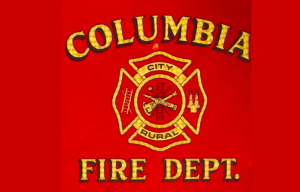Gaming revenue rolling in
Five years on from the passage of the Illinois Video Gaming Act, Illinois municipalities and county boards that passed ordinances approving gaming are seeing funds steadily on the rise.
Waterloo, Columbia and Monroe County all allow video gaming terminals in licensed establishments.
Waterloo leads the way with 43 terminals in 11 establishments. In 2017, the city received $98,734.58 in revenue, up from $75,628.75 in 2016.
The greatest amount — $25,303.57 — came from Ruby’s, followed by Willie’s West End with $18,851.10, Bobeck’s Sports Bar & Grill with $14,506.09, Marilyn’s Wine Time with $13,105.16, Randy’s Double R Bar with $12,216.56, and Outsiders, JV’s Downtown Bar & Grill, Fourth Street Bar & Grill, LMBries (now Mr. BBQ) and Imo’s with less than $5,000 each. In all, patrons spent $19.2 million at Waterloo video gaming terminals, with nearly $18 million paid out in winnings.
Illinois collects a 30 percent tax on net terminal income, or the amount gambled minus what is paid out, with 25 percent going to the state and the other 5 percent going to the local municipality or county. The remaining 70 percent of the income is split evenly between the business that hosts the video gaming terminals and the terminal operators.
Waterloo created the Video Gaming Downtown Beautification Fund to put its share of the revenue to good use.
“We want to make sure this money goes to efforts that keep the city looking nice,” Waterloo Mayor Tom Smith said in a 2015 article.
The city approved the purchase of the colored Christmas lights and white lights that hang over Main and Mill streets all year round out of the fund. New downtown Christmas decorations, hanging flower baskets, painted murals on the sides of downtown buildings, and signs for historic buildings are other items that have been paid for out of this fund.
Columbia created a park improvement fund for its share of video gaming revenue. In 2017, that amount, from 29 machines at eight establishments, was $52,871.57.
Top Shooters was responsible for the greatest portion — $17,690.41. Tiny’s followed with $10,718.04, Bully’s with $10,618.40, Merz on Main with $5,988.44, and Columbia American Legion, Who Dat’s, Ace’s Wild and Chateau la Vin with less than $5,000 each.
In all, patrons spent $14 million at Columbia gaming terminals, with $13.1 million paid out in winnings.
“We don’t have a dedicated tax or anything like that for parks,” Columbia City Administrator Jimmy Morani said, “so the city decided they wanted that revenue to go to park improvements.”
Among the projects funded so far are sealing the tennis courts at Metter Park, and replacement of the Horseshoe Pavilion, installation of an ADA-accessible drinking fountain and installation of four new lights at Bolm-Schuhkraft Park.
A replacement playground pavilion is currently out for bids.
Monroe County, which operates 12 machines at three locations, received $18,780.32 in 2017. That number was down slightly from $20,547.86 in 2016, when the county received late payments that were due to the county in 2015.
The revenue, which is generated through terminals at Route 3 Bar & Grill, Select Fuel and Walsh’s Inn, goes into the general fund.
The Video Gaming Act was passed by the state of Illinois in July 2009 in part to help provide as much as $300 million in funding for the state’s $31 billion capital program Illinois Jobs Now! and in part to help offset the potential economic impact of the 2008 Smoke Free Illinois indoor smoking ban on restaurants and bars.
The first video gaming terminals started rolling into approved establishments in 2012.






